15 historical events that defined the baby boomer generation
Frank Olito

- The baby boomer generation has experienced some of the most important events in American history.
- Politically, the Cuban Missile Crisis, the civil rights movement, and the Vietnam War all affected baby boomers.
- Woodstock, Beatlemania, and the moon landing also defined the generation.
Throughout history, protests, concerts, and wars have defined generations — baby boomers are no different.
People who were born after World War II between 1946 and 1964 are considered baby boomers, and they have experienced some of the most significant events in American history.
These are the 15 moments that made the boomer generation who they are today.
Senator Joseph McCarthy began holding public hearings of people accused of communism in 1954.
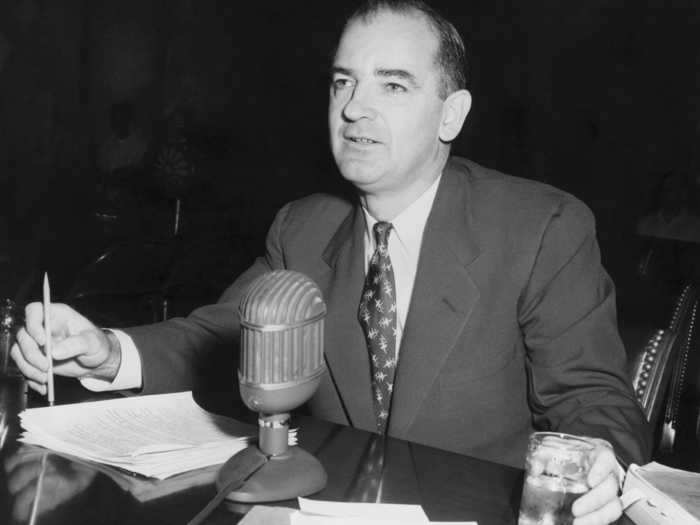
Between 1950 and 1954, Senator Joseph McCarthy waged war against anyone he suspected to be a communist. The term McCarthyism was coined to describe the campaign of accusing certain Americans of being communist, leading them to lose their jobs and status.
It reached a fever pitch in 1954 when McCarthy held televised hearings in which he accused the US Army of being communist sympathizers.
Although some baby boomers were quite young at this time, they were born into this era of distrust among many Americans.
In 1955, Rosa Parks refused to give up her seat to a white man on a bus, which launched the civil rights movement.
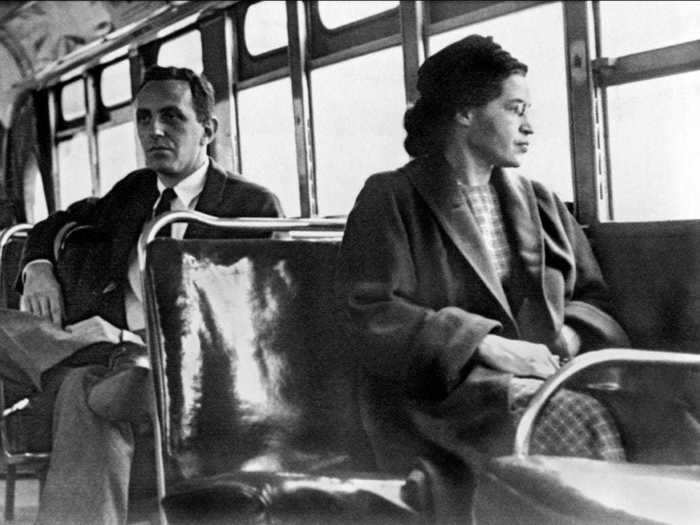
On December 1, 1955, Rosa Parks was on her way home from work in Montgomery, Alabama, and decided to take a public bus. She sat towards the back of the bus, which was reserved for black people. During her commute home, the front of the bus — reserved for white people — became full, and the bus driver told Parks to move so a white man could sit. Parks refused, and she was arrested.
"People always say that I didn't give up my seat because I was tired, but that isn't true," Parks wrote in her autobiography. "I was not tired physically … No, the only tired I was, was tired of giving in."
Shortly after her arrest, the black community boycotted the bus, which sent shockwaves through most of the South. This moment in history shaped the next decade of baby boomers' lives because it sparked the civil rights movement.
John F. Kennedy was elected president in 1960, which was a defining moment for the generation.
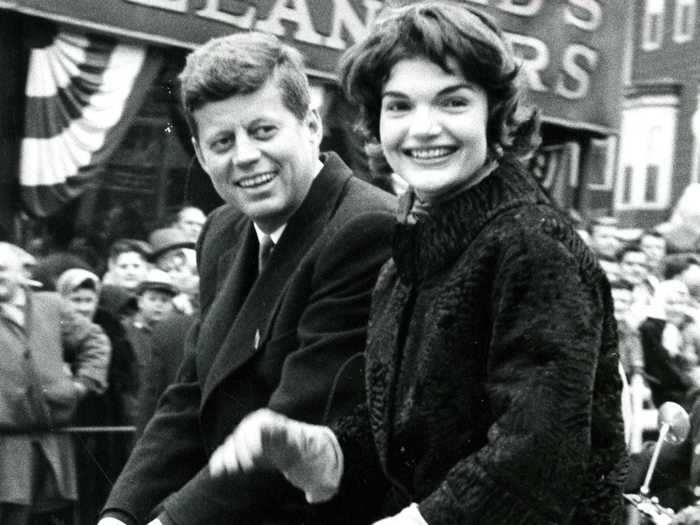
The 1960 presidential race was between Massachusetts Senator John F. Kennedy and Vice President Richard Nixon. The two squared off in the first televised debates in the nation's history. Kennedy was noted for being charismatic and calm in front of the camera, while Nixon was said to look nervous and closed off.
In November 1960, Kennedy, then 43, won the election and became the youngest president to ever be elected.
The Berlin Wall went up in the early 1960s, symbolizing the Cold War.
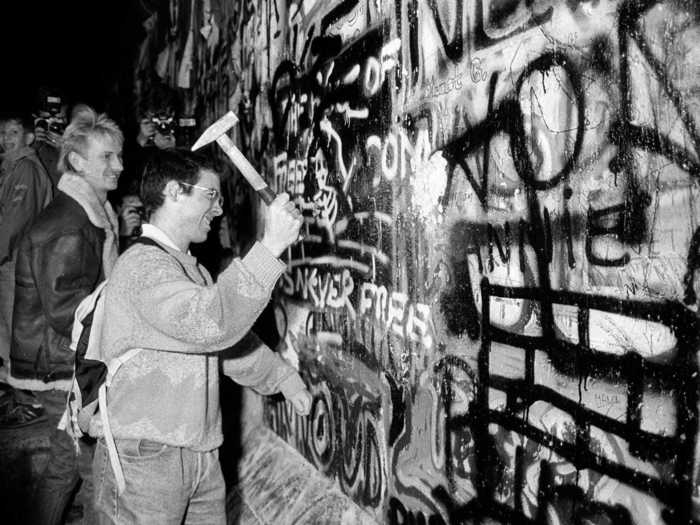
On August 13, 1961, East Germany — known as the German Democratic Republic — began building a wall, separating themselves from West Berlin. After World War II, East Berlin was still in control of the Soviet Union, so they hoped the wall would protect their socialist ideals. Once the wall was built, it was nearly impossible to cross. Throughout the years, 171 people were killed attempting to cross the wall.
Before it came down in 1989, the Berlin Wall remained a symbol of fear, socialism, and the Cold War — three concepts that defined the baby boomer generation.
In 1962, the Cuban Missile Crisis brought fear to everyone in the United States.
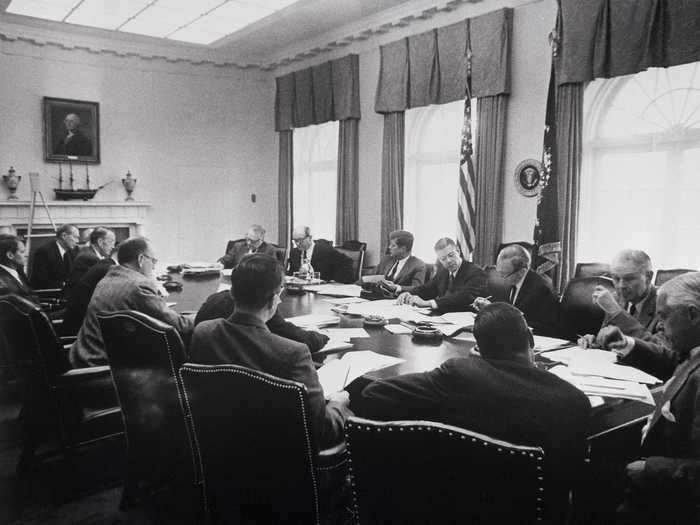
President John F. Kennedy addressed the nation on October 22, 1962, telling Americans that the Soviet Union had placed missiles on Cuba, just 90 miles from the coast of the US. Kennedy said he blockaded the island with naval ships, threatening to use force to neutralize the missiles. For the time being, the nation was at a standstill. After the announcement, Americans lived in fear for 13 days, believing a nuclear war was about to begin at any moment.
Ultimately, the Soviets agreed to dismantle the missiles and a crisis was averted, but the effects of the incident on the baby boomer generation were long-lasting.
Martin Luther King, Jr. led his famous March on Washington in 1963.
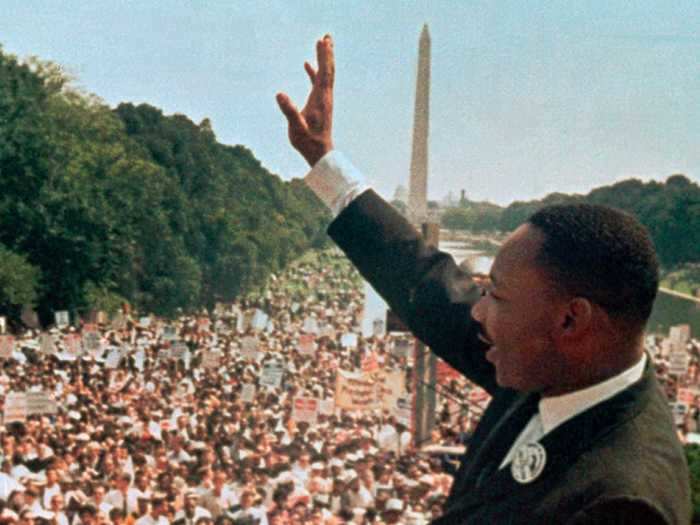
On August 28, 1963, 250,000 people gathered in Washington, DC, at the Lincoln Memorial, led by Martin Luther King Jr. The Walk on Washington for Jobs and Freedom was meant to protest the inequalities black Americans experienced.
On the steps of the Lincoln Memorial, King delivered his famous "I Have a Dream" speech, which became the activist's most famous remarks.
"And so even though we face the difficulties of today and tomorrow, I still have a dream," he said in his generation-defining speech. "And when this happens … we will be able to speed up that day when all God's children, black men and white men, Jews and Gentiles, Protestants and Catholics, will be able to join hands and sing in the words of the old Negro spiritual, 'Free at last! Free at last! Thank God Almighty, we are free at last!'"
In 1963, President John F. Kennedy was assassinated in Texas.
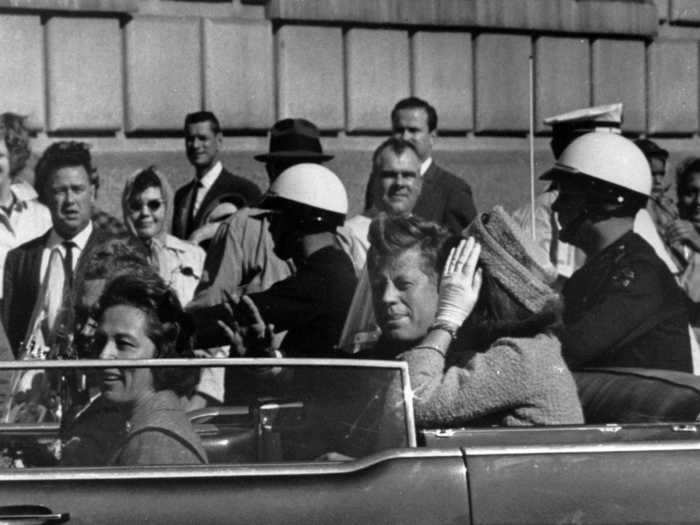
On November 22, 1963, President John F. Kennedy and his wife, Jackie Kennedy, went on a 10-mile motorcade through downtown Dallas, Texas. When the car they were in passed the Texas School Book Depository Building, Lee Harvey Oswald fatally shot the president. Vice President Lyndon B. Johnson was sworn into the presidency on Air Force One.
In the following days, hundreds of thousands of Americans flocked to Washington, DC, to pay their respects to the president.
Beatlemania began in 1963, sparking the generation's love for rock music.
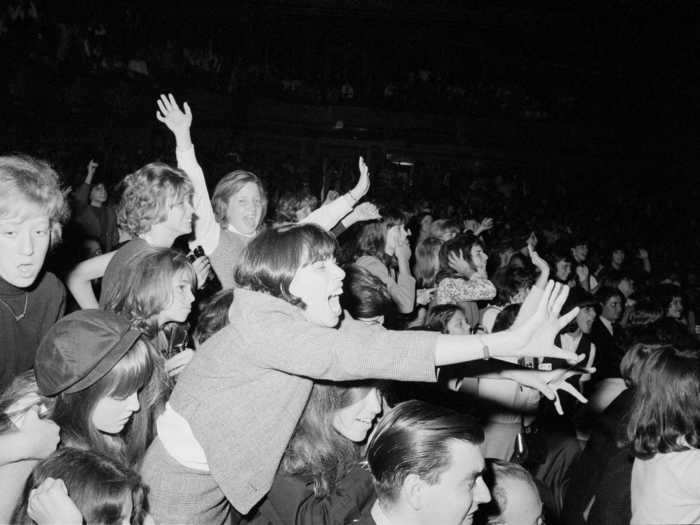
In 1963, The Beatles were already popular in England, performing sold-out shows and becoming a sensation, but they struggled to reach mainstream success in the US. In October 1963, however, TV host Ed Sullivan spotted fans screaming at the band at Heathrow Airport in London. Sullivan decided to book the band on his show, launching The Beatles into the US spotlight.
Their first big hit in the US was "I Want to Hold Your Hand," selling 1 million copies in just days. When the band flew across the pond for the first time in 1964, they were greeted by 3,000 screaming fans, showing the power of Beatlemania in the US.
The Civil Rights Act of 1964 changed America forever.
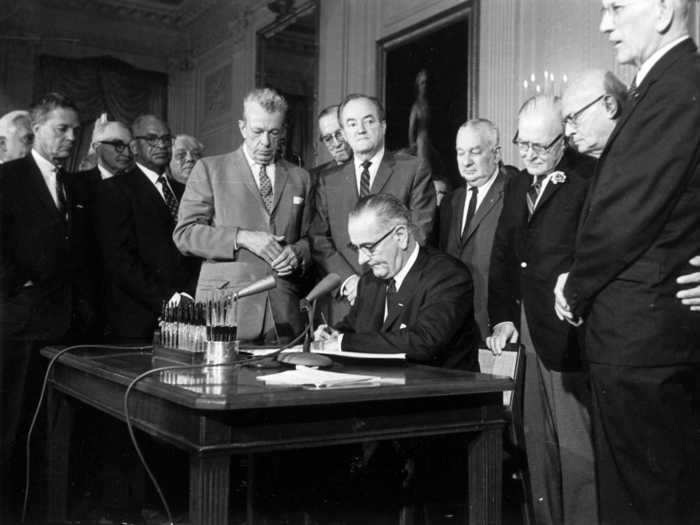
Following a decade of riots, boycotts, and protests for civil rights, President Lyndon B. Johnson signed the Civil Rights Act of 1964. The act banned segregation based on race and national origin in public places. It also made discrimination in employment based on race, religion, or sex illegal.
In 1968, Martin Luther King, Jr. was assassinated.
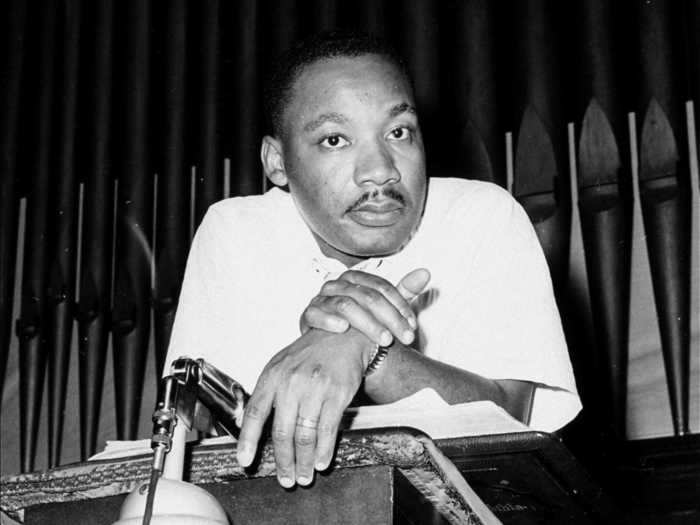
On April 3, 1968, Martin Luther King, Jr. gave a speech that seemed to eerily foreshadow his death. He said, "I've seen the promised land. I may not get there with you. But I want you to know tonight, that we, as a people, will get to the promised land. And I'm happy tonight. I'm not worried about anything. I'm not fearing any man. Mine eyes have seen the glory of the coming of the Lord."
The following day, King was assassinated on the balcony of a motel in Memphis, Tennessee. His death sent shockwaves throughout the world and helped usher in more reforms for African Americans like the Fair Housing Act.
The United States began to draft baby boomers into the Vietnam War in the late '60s.
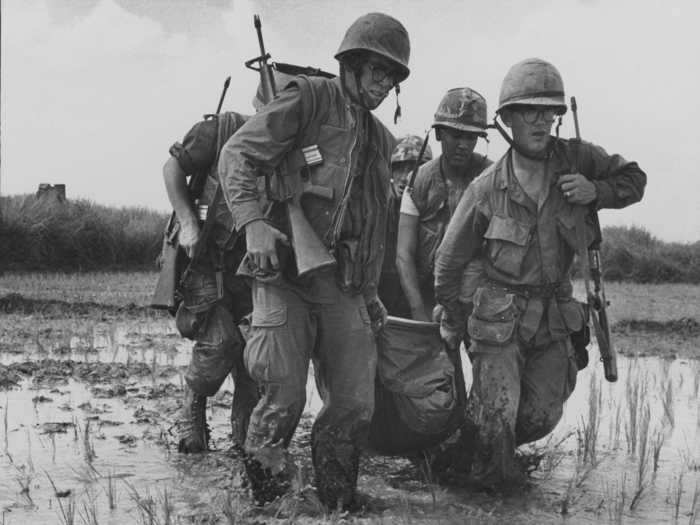
The New York Times reports that 40% of males in the baby boomer generation served in the war. It's estimated that 47,434 American fighters were killed during Vietnam. Those who did return home were often treated poorly, shamed for their part in the war.
This war also prompted a monumental counter-culture known as the hippie movement among baby boomers back in the US. The free-love movement generated ideals of anti-war and anti-violence.
When Americans landed on the moon in 1969, it gave members of the baby boomer generation hope.
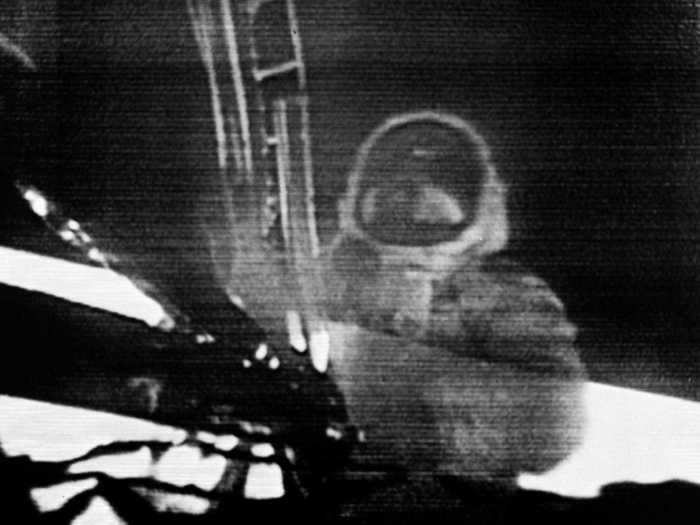
Most baby boomers grew up during the Space Race, a competition between the Soviet Union and the United States to see who could get to space first.
On July 20, 1969, Neil Armstrong and Buzz Aldrin became the first humans to land on the moon. Armstrong became the first person to actually walk on the surface of the moon, saying his famous line, "That's one small step for man and one giant leap for mankind."
The event was televised on national TV and was watched by 600 million people.
The Woodstock music festival in 1969 was the quintessential hippie event for baby boomers.
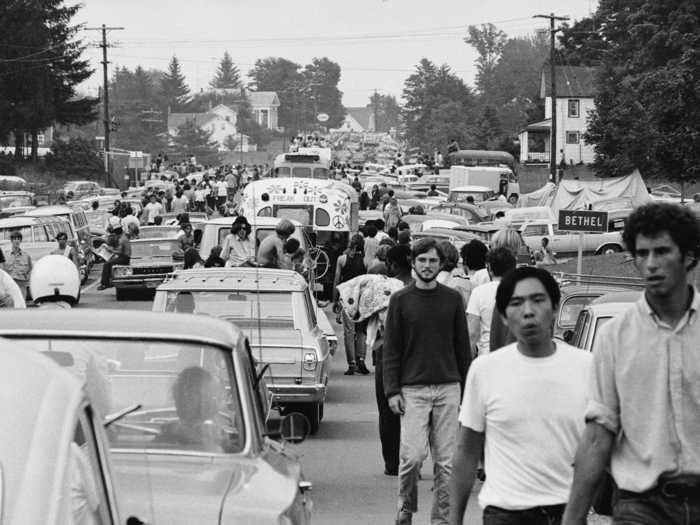
On August 15, 1969, half a million people flocked to Woodstock, New York, for a three-day music festival. Little did they know that they were participating in a historical event, as it became synonymous with the hippie and free-love movement.
The festival had notable music acts like The Who, Janis Joplin, Sly and the Family Stone, Joan Baez, Simon and Garfunkel, Led Zeppelin, The Doors, Bob Dylan, and Jimi Hendrix.
In 1970, the Kent State shootings left four university students dead.
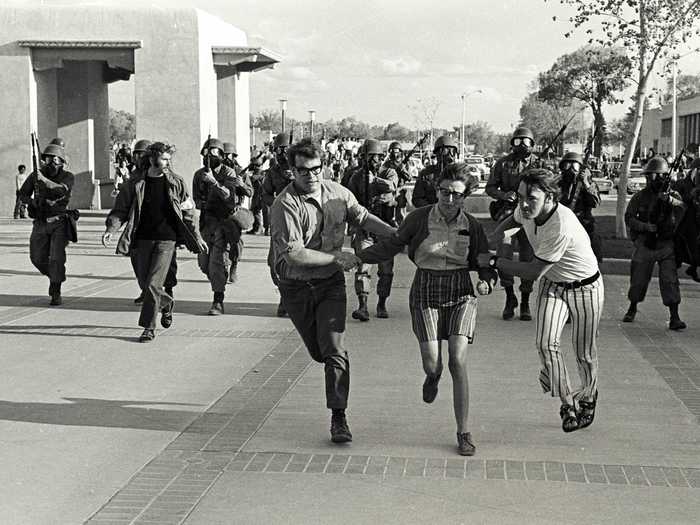
Protests against the Vietnam War were common in the late '60s and '70s, but one turned deadly. In May 1970, students at Kent State University in Ohio started holding protests on campus. Eventually, there were reports that local police were being harassed in the downtown area, leading the mayor to declare a state of emergency. The National Guard was called in and on May 4, the guard opened fire on the crowd, killing four students: Jeffrey Miller, Allison Krause, William Schroeder, and Sandra Scheuer.
The tragedy prompted student strikes across the US and highlighted the deep divide over the Vietnam War.
The Watergate scandal in 1972 was another defining moment in politics for baby boomers.
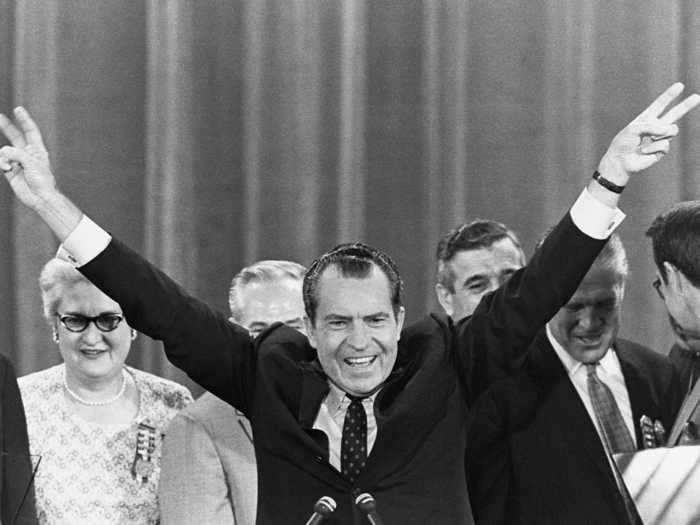
On June 17, 1972, burglars were caught at the Democratic National Committee wiretapping phones and taking important documents. The Washington Post reporters Bob Woodward and Carl Bernstein revealed President Richard Nixon's link to the burglary and the cover-up attempts. The House Judiciary Committee decided to impeach the president for abuse of power and covering up a crime. On August 5, Nixon resigned from the presidency.
READ MORE ARTICLES ON
Popular Right Now
Popular Keywords
Advertisement